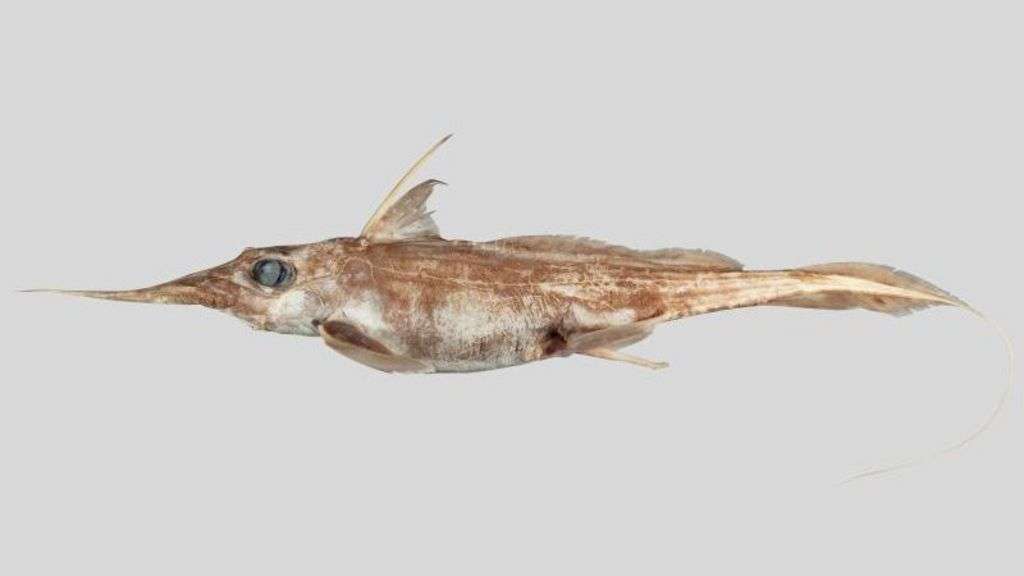New Zealand scientists have discovered a new species of "ghost shark" - a rare type of fish that is incredibly hard to spot because it lives at great depths in the Pacific Ocean.
Also known as a spookfish or chimera, ghost sharks are closely related to sharks and rays. They do not have scales and their skeletons are made completely of cartilage.
Dr Brit Finucci, one of the scientists who discovered the Australasian Narrow-nosed Spookfish, said the find was "exciting".
"Their habitat makes them hard to study and monitor, meaning we don't know a lot about their biology or threat status," she said.
Dr Finucci and other researchers from New Zealand's National Institute of Water and Atmospheric Research (Niwa) found the creature in an area of ocean floor known as Chatham Rise, which lies to the east of New Zealand.
Ghost sharks typically live at depths of up to 2,600m (1.6 miles).
Dr Finucci said the species stood out for its unusually long snout, which can make up half its body length.
She has given the new fish a scientific name with a personal twist: Harriota avia.
“Avia means grandmother in Latin, I wanted to give this nod to her because she proudly supported me through my career as a scientist,” Dr Finucci explained.
“Chimaeras are also rather ancient relatives – the grandmas and grandpas – of fish and I thought the name was well suited.”
The spookfish was initially thought to be part of a species found around the world. However, research later revealed it was genetically different to its cousins and lived exclusively in Australian and New Zealand waters.
Scientists say discoveries like this are crucial, because learning more about how the species lives helps experts figure out the best ways to protect them.








